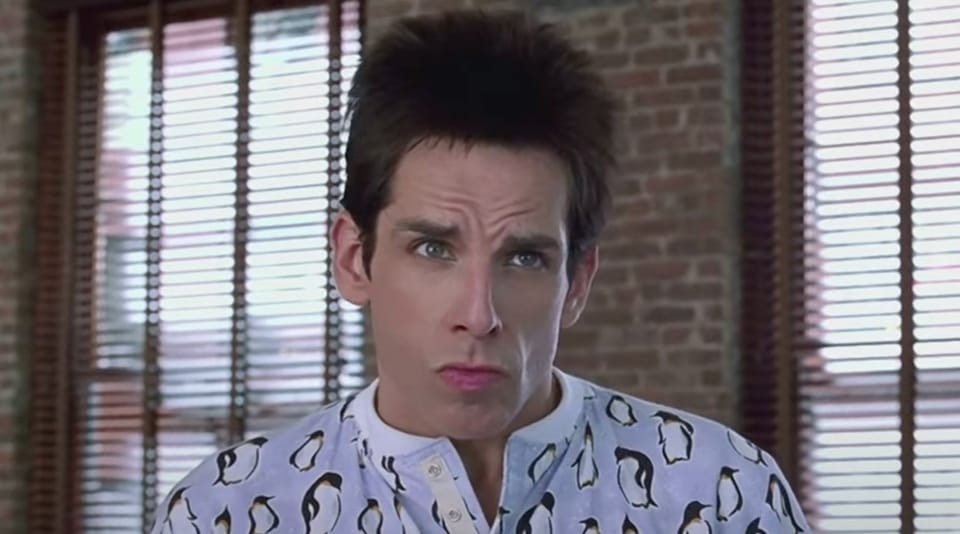Ridiculously Good Looking

Sometimes I wonder if there is something wrong with me.
But then I remember that the concept of normal doesn't actually make sense anyway, especially in regards to people. It's a false construct created through averaging all of the uniqueness out of the set that is humanity, such that no single element of that set actually aligns with the result.
At least that's what I tell myself anyway.
If you couldn't tell, this week's post is going to be a stream of consciousness, because that's what I feel like writing right now and I am lord and master of this little soapbox and that is a specific sort of blog post that I write sometimes. For reference, the other sort is a classic three-point + summary model.
Which brings me, obliquely, to the actual thing I want to write about.
I don't really function without a model to follow.
If I need to do something, I have to be able to map out the general shape of the thing before I can really focus on actually doing it. I need to know where the edges are, or I feel lost and unable to move forward.
Lack of structure is a deal-breaker for me.
Surely that's not how other people function? I see people who can just throw something together or start a conversation without having sketched out the overall model that should be followed and I am flabbergasted.
Let's start this journey of reflection with a concrete example.
One of the things that I am responsible for, as a Technical Program Manager (TPM) at Atlassian, is wrangling largish pieces of work towards a successful outcome. I have to understand what needs to be done, when it needs to be done and how it's going to be done.
Recently, I became responsibly for an initiative that would require the delivery of three to four separate projects across at least two different teams in order to generate the appropriate outcome, which would feed into a much larger program of work within the company.
While the desired end-state was clear, the steps from where we were to where we needed to go were not well defined, with weird, ambiguous boundaries that kept shifting depending on who you asked.
I had to come up with a general model for how to approach the situation, and I had to do that before I could even start thinking about the actual problem.
It's not super important, but for reference, the model involved:
- A clear definition of the current state
- A clear definition of the desired state
- The delta represented by a set of units of work
- Duplicating the first three points for all of the permutations
- Calculating the investment and timeframes of each permutation
I had a really good set of whiteboard scrawlings that would have been great to paste here as a visual reference, but alas, I have already erased them. It looked a little like this.

Note that I didn't actually use the model that I came up with, I just needed it to exist like some sort of security blanket before I felt like I could move forward.
Concrete example number two!
In another similar situation, I couldn't really even get started trying to wrangle a different problem until I'd figured out how and where we were going to document the whole thing (in Confluence, with a hierarchical page structure supported by a TL;DR page right at the top and with a Slack channel for stakeholders to ask questions, just in case you were curious).
I'm self-aware enough to see that both of those examples describe behaviours that seem ineffective.
First off, not everything can have a model applied to it. Sometimes reality is complicated and messy and difficult to reason about and won't fit nicely into a pretty little box with a ribbon on top.
And that thought pains me.
But the second problem is that the period of time where I am struggling to come up with a relevant model is not only wasteful, it's risky, because I can get demotivated and distracted on any number of other things that come up.
Where am I going with all of this?
Honestly, I wish I knew. That's what happens when I start writing one of these streams of consciousness. I never really know what's going to happen.
I think I'm trying to explore how I deal with uncomfortably ambiguous and unclear situations and reflecting on my need to have a model in order to be functional, questioning whether or not I can actually do anything about it.
I feel a lot more comfortable when I can pull from a set of well-organised models in order to provide structure, structure that helps me to move forward with confidence.
Is that so bad?
Oh, look, we've reached the rationalisation part of the reflection, where I try to justify that these behaviours are not actually all that harmful in the scheme of things, which is probably true and I'm actually just being too hard on myself.
Probably best to stop here before I plumb too far down into the depths of my misbegotten psyche and can't find my way out.
You know, because I don't have a well-defined model for doing that.
Member discussion